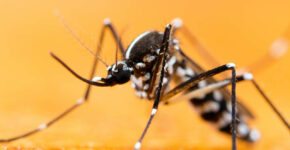Content type: Page
Le 20 novembre 2023, l’Université de Montpellier a voté son schéma directeur pour la transition écologique. Un document structurant pour renforcer les mesures déjà mises en place ces dernières années à l’UM mais également engager et coordonner la mise en œuvre d’une politique de transition écologique à la hauteur de ses ambitions. Une brève présentation de sa construction avec Frédérique Carcaillet, vice-présidente déléguée aux enjeux environnementaux. En 2022, pour son nouveau mandat, le président, Philippe Augé a souhaité mettre en place une vice-présidente dédiée aux enjeux environnementaux, une vice-présidence transversale par nature dans la mesure où les enjeux environnementaux concernent l’université non seulement en tant que structure de formation, de recherche et d’innovation, mais aussi en tant que consommateur de ressources et qu’acteur du développement du territoire dont l’université fait partie. Un bureau d’appui administratif et opérationnel dédié à la transition écologique de l’établissement a également été créé. « La première année de ma vice-présidence et du fonctionnement du bureau a permis de réaliser un état des lieux des démarches déjà engagées depuis plusieurs années par l’université en matière de transition écologique. Elle a aussi permis de définir le périmètre du futur schéma directeur et de structurer les dispositifs décisionnel et opérationnel, indispensables pour l’atteinte les objectifs de l’Université » Deux comités ont été créés : un comité de pilotage ayant pour mission de faire des propositions et de suivre la mise en œuvre de la politique de transition écologique de l’établissement et un comité opérationnel pour le suivi de la mise en œuvre du plan d’actions et le reporting au comité de pilotage. « Après avoir élaboré les grandes lignes et principales actions du schéma directeur sur la base du référentiel national DD&RS et dans le cadre du plan climat et transition écologique du ministère, nous avons lancé une consultation au sein de l’établissement afin de recenser les besoins et les idées d’actions des différentes structures. Nous avons ainsi pu compléter notre plan d’actions et définir les indicateurs à suivre pour nous assurer de la bonne marche du schéma directeur » Dans une structure comme l’UM rassemblant 17 facultés, écoles et instituts, 1 établissement composante et plus de 70 laboratoires de recherche, un enjeu majeur était d’améliorer la capacité de l’établissement à engager l’ensemble de la communauté dans les processus de transformation et de développement de la stratégie de transition écologique. C’est pour répondre à ce besoin qu’a été créé le réseau des correspondants transition écologique. « Ce réseau nous permet d’impliquer largement l’ensemble de la communauté dans la mise en œuvre des différentes actions. Il comporte plus d’une centaine de personnes assurant le relais des informations relevant de la transition écologique et le partage de bonnes pratiques entre les différentes structures de l’établissement » 2025 est l’année du bilan mi-parcours du schéma directeur pour la transition écologique de l’UM, une étape clé pour faire le point sur la dynamique engagée depuis 2023 et pour commencer à réfléchir à l’UM 2030 ! Présentation du Schéma Directeur de la Transition Écologique (SD TE) L’Université de Montpellier a anticipé les exigences du ministère de l’Enseignement Supérieur et de la Recherche en matière de transition écologique en adoptant dès 2023 son Schéma Directeur de la Transition Écologique (SDTE), structuré autour de 4 axes et 48 actions à mener jusqu’en 2026. Les actions en matière de responsabilité sociétale ne font pas partie de ce schéma : déjà élaborées et en cours de déploiement, elles sont inscrites au sein d’autres documents pluriannuels (schémas directeurs du handicap et de la vie étudiante, plan égalité femmes-hommes…) qui ont leur propre visibilité. Axe 1 : Enseignement et formation, « Former les étudiantes, les étudiants et les personnels à la transition écologique »
Objectifs principaux : Intégrer les problématiques de transition écologique et de développement soutenable dans les enseignements Favoriser et accompagner le développement des compétences en transition écologique des personnels Encourager l’engagement des étudiants pour la transition écologique et sa promotion Pour atteindre ces objectifs, 11 actions ont été planifiées dont la mise en place de modules obligatoires sur la transition écologique pour les étudiants de premier cycle, la mise à disposition de ressources pédagogiques pour les étudiants et les enseignants, l’installation de démonstrateurs technologiques sur les campus et la construction de modules de formation spécifiques pour les personnels. Axe 2 : Recherche et innovation, « Promouvoir une recherche responsable au service de la transition écologique »
Objectifs principaux : Intégrer la transition écologique dans la recherche et l’innovation à l’UM Accroître les interactions entre la science et la société Il s’agit d’inciter les laboratoires à s’engager dans une recherche plus responsable en favorisant le partage de bonnes pratiques via des séminaires et un réseau de référents engagés, la mise en place de critères de sélection pour les projets internes et la mise à disposition des données nécessaires aux autoévaluations des laboratoires en matière d’impact environnemental. Un accent a aussi été mis sur l’accroissement des relations entre la science et la société et l’importance du rôle des scientifiques dans les politiques publiques. Axe 3 : Environnement, « Agir pour l’environnement et modifier les comportements »
Objectifs principaux : Réduire l’empreinte carbone de l’UM Diminuer et gérer les déchets Protéger et favoriser la biodiversité Pour atteindre ces objectifs, le plan d’action prévoit de prolonger les opérations de réhabilitation énergétique du patrimoine immobilier et raccordement aux réseaux de chaleur urbains, développer l’usage des énergies renouvelables, favoriser les mobilités douces et réaliser un diagnostic de ses émissions de gaz à effet de serre. Il s’agit également d’agir pour mieux connaitre et accroitre la biodiversité sur les campus en pratiquant le « zéro pesticide », « zéro arrosage », fauches et tailles tardives et en sensibilisant les usagers. Autre point central de ce plan, la gestion des déchets : favoriser la réutilisation et le recyclage notamment pour le matériel informatique, le mobilier de bureau et les emballages et réduire la production de déchets. Axe 4 : Stratégie et gouvernance, « Construire une gouvernance de la transition écologique et promouvoir une activité responsable »
Objectifs principaux : Intégrer la politique de transition écologique dans le pilotage de l’UM Mobiliser les ressources humaines, techniques et financières nécessaires S’inscrire dans une démarche de développement responsable conciliant les dimensions économique, sociétale et environnementale Des outils de pilotage et de suivi de réalisation des différentes actions sont nécessaires afin d’allouer au mieux les ressources humaines, techniques et financières. Cela passe par la création de comités et d’un réseau de référents, les « correspondants transition écologique ». Ceux-ci doivent permettre d’évaluer et d’analyser la performance de la démarche et constituent une source précieuse d’information pour communiquer, sensibiliser et favoriser l’engagement et l’adhésion de tous. Afin de renforcer l’application du SDTE et d’ancrer la culture de TE dans l’ensemble des activités de l’établissement, l’UM intègre les enjeux de transition écologique dans tous les aspects de la politique d’achats responsables. Consulter le schéma directeur de la transition écologiqueTélécharger















